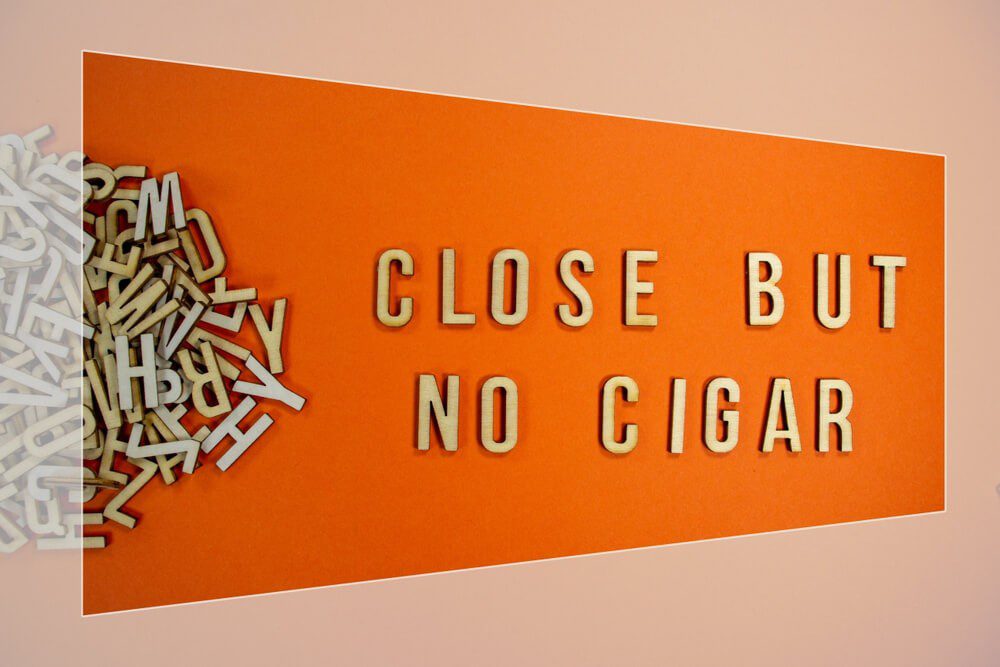Ever been within an arm’s reach of success, only to fall short? If so, you’ve lived the essence of the phrase, “Close but no cigar.” As versatile as it is vibrant, this idiom has colored the English language with its vivid imagery for well over a century. It’s a phrase that nods to our resilience, that encourages us to keep pushing forward, and a charming example of how language evolves with culture.
The Phrase: An Overview
“Close but no cigar” is a phrase often used when someone nearly accomplishes a goal, but falls just short. It’s a recognition of effort and the acknowledgement of a near miss. Rooted in positivity, it encourages the perseverance necessary to eventually hit that mark and claim your ‘cigar’.
The Exciting Origins of “Close But No Cigar”
This idiom’s history is as rich as the aroma of a premium cigar. Stemming from the late 19th and early 20th century, its origins are tied to the world of carnivals and fairs, where cigars were often awarded as prizes. When participants narrowly missed winning a game, operators would often console them with “close but no cigar,” reminding them of how tantalizingly close they were to winning.
The Phrase in Modern Context
Fast forward to today, and you’ll find “close but no cigar” still firmly embedded in our daily language. Whether we’re discussing business negotiations, competitive sports, or personal endeavors, it beautifully captures the essence of being inches away from success.
Why is it Important to Understand This Phrase?
Having a grasp on idioms like “close but no cigar” enhances our understanding of language’s texture and depth, while adding a dash of history and culture to our conversations. Idiomatic expressions are like the secret spices of a language, and understanding them can empower you to communicate more effectively and engagingly.
Frequently Asked Questions
1. Are there any similar phrases to “Close But No Cigar”? Yes, idioms such as “almost doesn’t count” or “near miss” convey similar sentiments.
2. Can “Close But No Cigar” be used in a formal setting? While more commonly used in informal language, it can also be utilized in formal settings, given that it’s used sparingly and appropriately.
3. What’s the best way to respond to “Close But No Cigar”? A positive response might be, “I’ll get it next time,” showcasing your resilience and commitment to improvement.
Conclusion
So there you have it, the fascinating journey of the phrase “Close but no cigar.” A testament to our strength and persistence, it’s a humble nod to how close we often are to achieving our goals. As you step back into your day, take with you the spirit of this idiom, and remember, you’re always just a stride away from your ‘cigar’.
Remember, language is an art, and idioms are its bold strokes. By understanding them, we don’t just become better communicators—we become storytellers, historians, and a part of the ever-evolving tapestry of our shared human experience.

